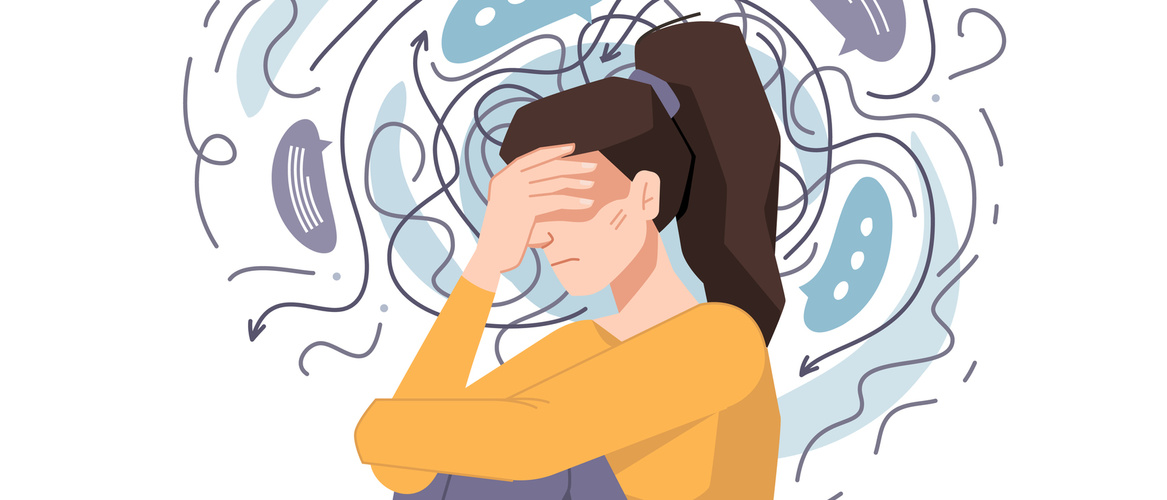
Choose a channel
Check out the different Progress in Mind content channels.

Progress in Mind

The question as to whether migraine impacts cognition is not a straightforward one to answer. Isabel Pavão Martins (Associate Professor at the Faculty of Medicine, University of Lisbon), presented findings and observations around this issue in a Special Session Lecture at the 9th Annual Meeting of the European Academy of Neurology (EAN) in Budapest. Professor Martins’ presentation showed that the picture is complex and nuanced, and that the answer is part ‘yes’, part ‘somewhat’, and part ‘it may depend on population’.1
Professor Martins’ began by reminding everyone that the most common manifestation of migraine is headache and presented findings regarding cognitive impact experienced during a migraine attack. When individuals living with migraine were specifically asked if they could think normally or reason normally during an attack, about 90% reported that they could not.2 The most common difficulties reported were: mental fogging; slowness of processing; difficulty multi-tasking and poor word retrieval.
90% of individuals with migraine report they cannot think normally during a migraine attack2
Several cross-sectional, clinic-based studies of individuals living with migraine supported these findings, confirming that, during an attack, there may be impairment of cognitive functions such as processing speed, attention and memory.3
It’s important to consider whether these cognitive changes during migraine attacks are really due to the pain competing with cognitive activities for limited attention resources. Evidence suggests this is not, in fact, the case. It has been demonstrated that, during a migraine attack, physiological changes accompany these cognitive changes. Within the brain, the executive control network and the attention networks usually act synergistically to improve attention during cognitive tasks, but during a migraine attack there is a loss of connection between these two networks.4
However, the most compelling evidence that cognitive impact is not simply connected to the pain of the headache is the fact that these cognitive symptoms have been shown to manifest in the pre-ictal phase, as well as continuing through to the post-headache phase.5
Cognitive symptoms have been shown to manifest before, during and after the headache phase5
When individuals are examined in the pre-ictal phase, tests such as Trail Making Test A, Trail Making Test B and the Digital Symbol Substitution Test reveal greater cognitive decline than is seen in the ictal phase.6 It’s also known that, amongst the 30% of individuals who experience aura,7 many experience cognitive symptoms during the aura. The most common are language disorders, but other symptoms, such as visual agnosia and prosopoagnosia also occur.8
The next question Professor Martins addressed was whether these symptoms persist beyond the migraine attack itself, or indeed whether patients experience more and more impairment with more and more attacks? Studies, including clinical meta-analyses and within a community setting, have shed some light on this, however it should be noted that inclusion criteria in the community setting may be less strict. The findings revealed that test scores demonstrating cognitive impairment in patients with chronic migraine (15 or more days per month affected by headache) are similar to those measured in patients during an acute attack, and in both cases significantly worse (i.e. more cognitive impairment) than those in control arms or in patients with episodic migraine. Domains measured included executive functioning, attention, processing speed, visual-spatial function and language.9
When examining meta-analyses of community studies, it can be seen that, overall, real-world patients living with migraine do have lower cognitive scores, though it is statistically non-significant. However, that’s not the whole picture. When you look at studies in Asian populations, the cognitive score differences are significantly lower. And when you look at the cognitive scores in some European studies, higher results can be seen.10 Whether this effect is environmental, genetic or due to some other factors is not yet known.
In some longitudinal aging studies it is possible to identify ‘with migraine’ and ‘without migraine’ subsets. Although some studies show no difference between the sub-populations over time,11 others actually reveal less cognitive decline.12 The reason for this protective effect could be that the ‘with migraine’ sub-populations have healthier lifestyles, with less smoking or alcohol consumption and other positive life-factors, probably as ways of mitigating against migraine attacks.
Overall, what is the picture?
“In patients with chronic migraine, migraine with aura, or during acute attacks lower cognition scores are seen” – Professor Isabel Pavão Martins
As her presentation drew to a close, Professor Martins reiterated that whether cognition was normal, or negatively impacted, “depended on multiple factors.”
Generally, in those who experience or have experienced migraine, normal cognition is associated with a past history of migraine, experience of migraine without aura, and/or in those with a healthy lifestyle. In such individuals there would be “normal scores” in cognitive tests. Conversely, in “patients with chronic migraine, migraine with aura, or during acute attacks” lower cognition scores are seen.
Newer migraine therapies might improve cognitive impairment in individuals experiencing migraine17
Looking to the future, and the opportunities presented by newer migraine therapies such as monoclonal antibodies, Professor Martins said they were “showing promise, with improvements beyond the headache itself.”13–16 With regard to cognitive symptoms, although there are currently few published studies, evidence from one Phase 2 study has shown improvements in speed of work, concentration and mental fatigue.17
Our correspondent’s highlights from the symposium are meant as a fair representation of the scientific content presented. The views and opinions expressed on this page do not necessarily reflect those of Lundbeck.